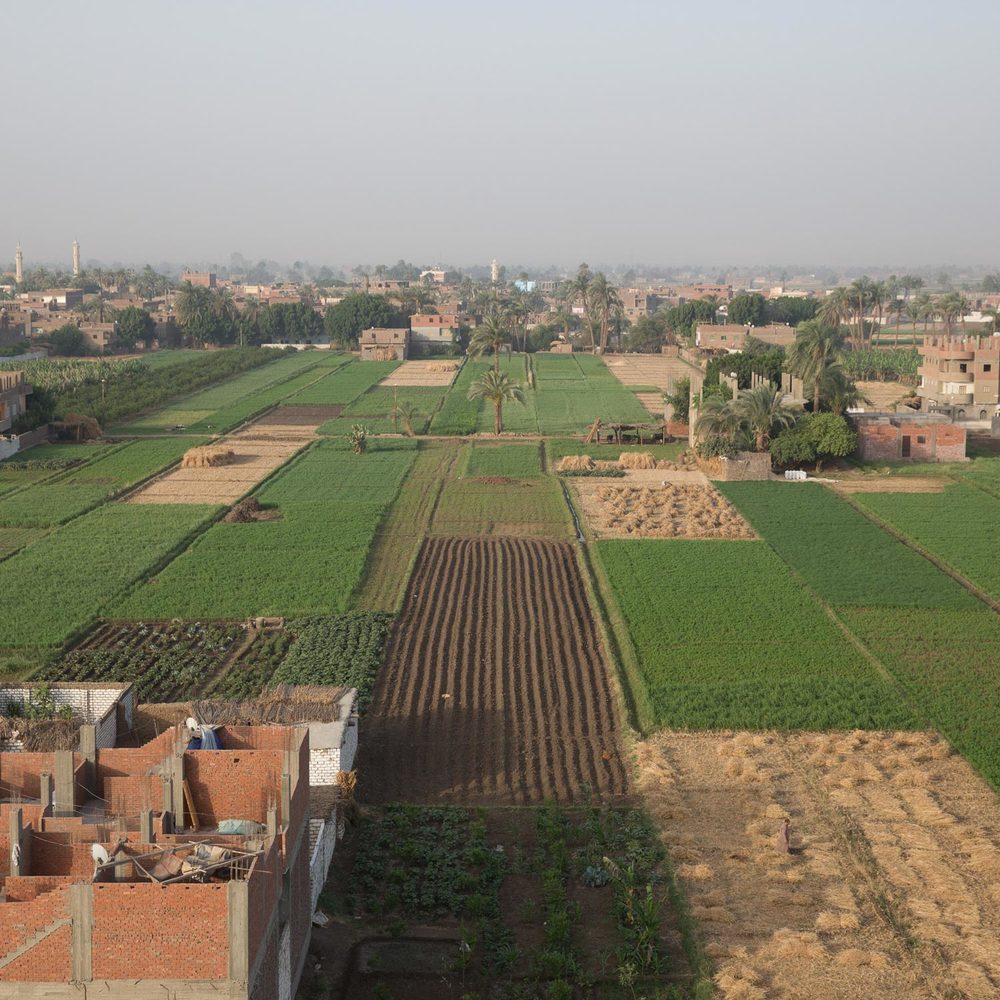
Assiut is the poorest governorate of Egypt, where many people struggle to provide the most basic needs for their families.
Nearly all families in Assiut have potable water services, yet sanitation services cover only 20% of the governorate. Only seven of 235 villages have this service, making rural sanitation a major challenge for Assiut.
Photo for USAID/Egypt.
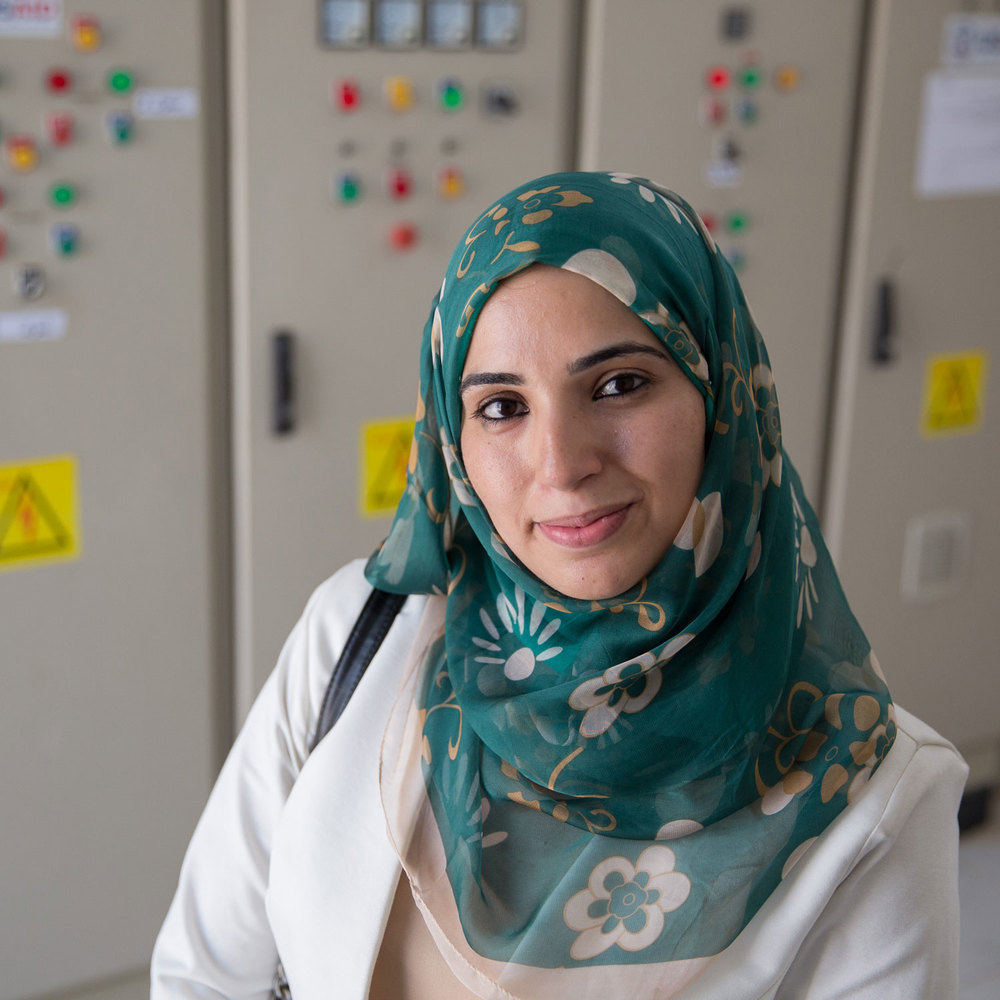
Heba Adel Mohamed is a 29 year old manager of five waste water pump stations in the Al Quseya district, about 60 km outside of Assiut. She supervises 50 male technicians and laborers and together they are responsible for the waste water services for thousands of residents.
She works for the Assiut Potable Water and Sanitation Company, a public service company owned by the Egyptian government, which since 2011 has received over $20 million from USAID/Egypt to fund the construction of nine water and wastewater projects in Assiut.
Photo for USAID/Egypt.
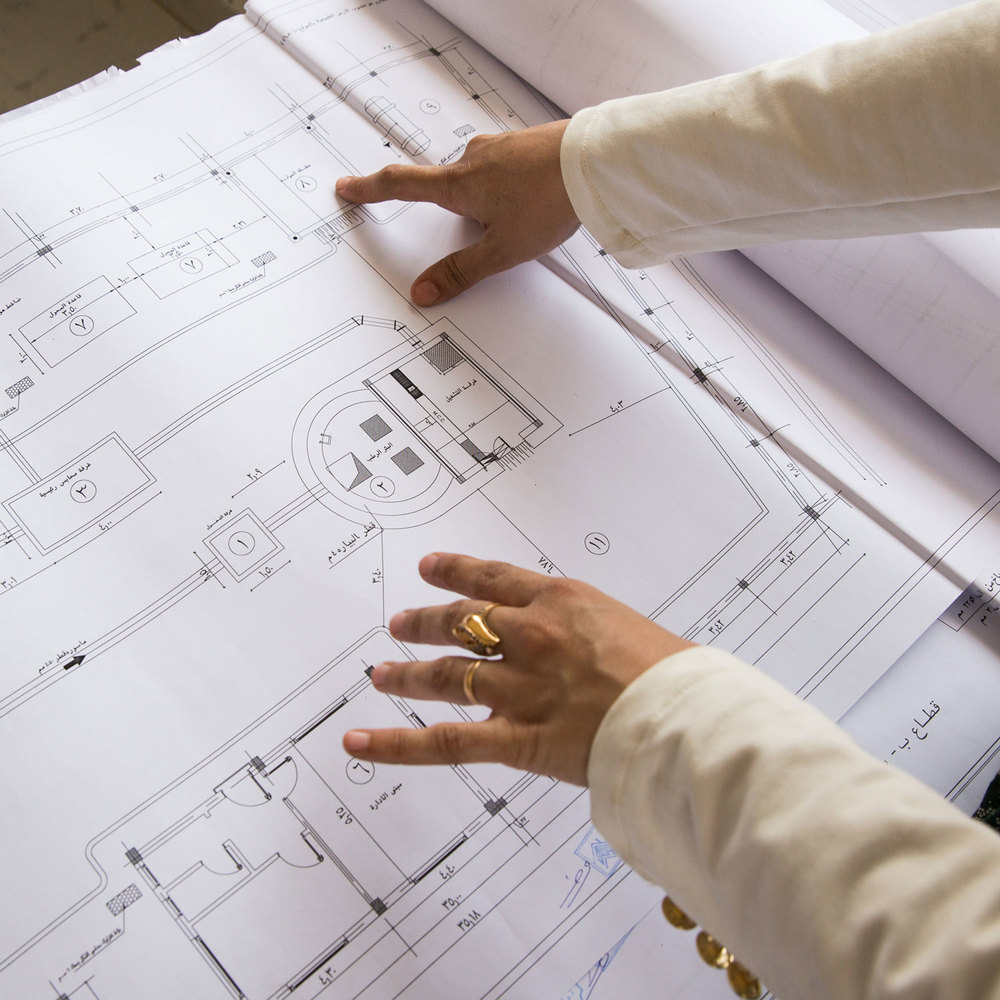
Heba studied electrical engineering at Assiut University because she felt engineering allowed her to be most creative.
“The thing I love most about my job is that I learn something new every day, especially in water sanitation. If something breaks, you don’t have a lot of time to fix it, so you have to be creative.”
Photo for USAID/Egypt.
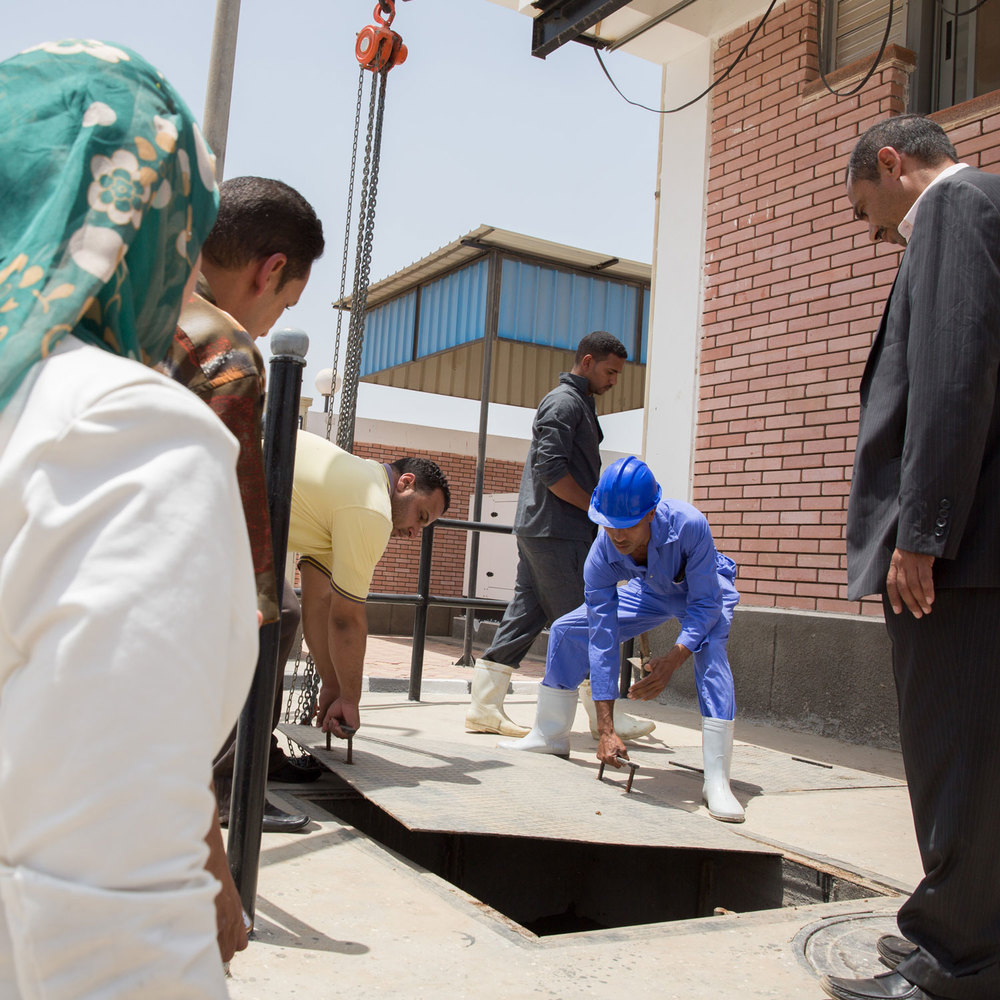
In the beginning, some of the laborers had trouble taking orders from her, both because she is a woman and because she is so young. Heba proved herself to be a valuable asset to the team and now everyone respects her as they work together for a shared goal.
Heba says that “in a work environment there are rules that apply to men and women equally, so there’s no problem with us working together.”
Photo for USAID/Egypt.
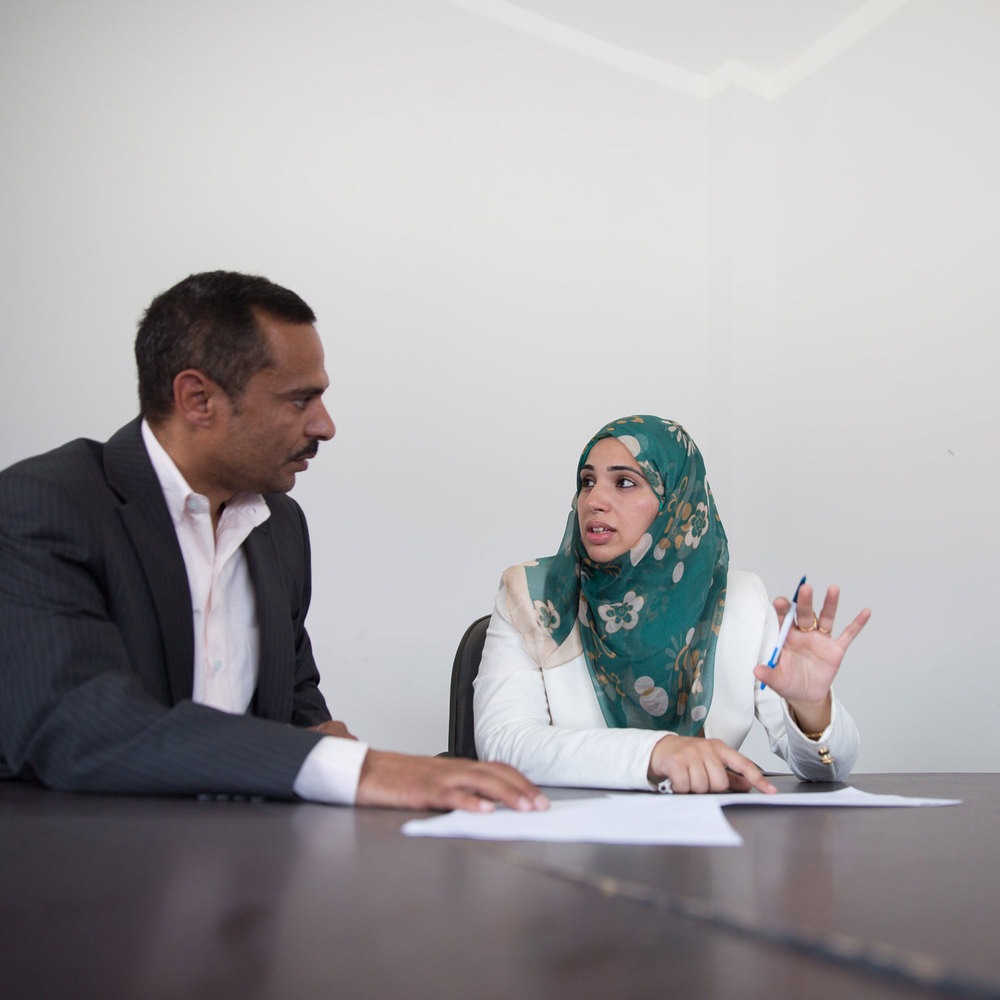
Heba’s manager Essam Ahmed has believed in her since she started working with the company 5 years ago. He trained her and supported her along the way.
Photo for USAID/Egypt.
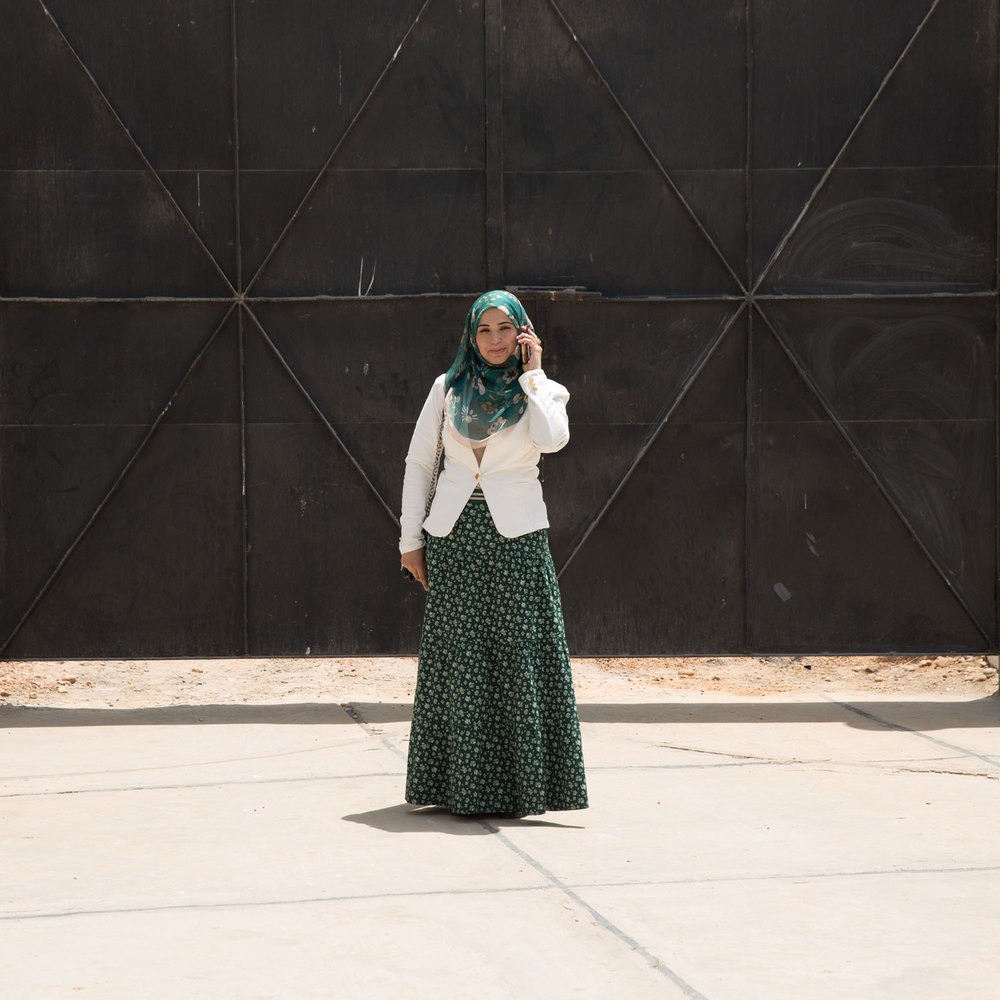
Heba acts as the liaison between the Assiut Potable Water and Sanitation Company and its customers, as she visits their homes and resolves complaints regarding their waste water services.
Photo for USAID/Egypt.
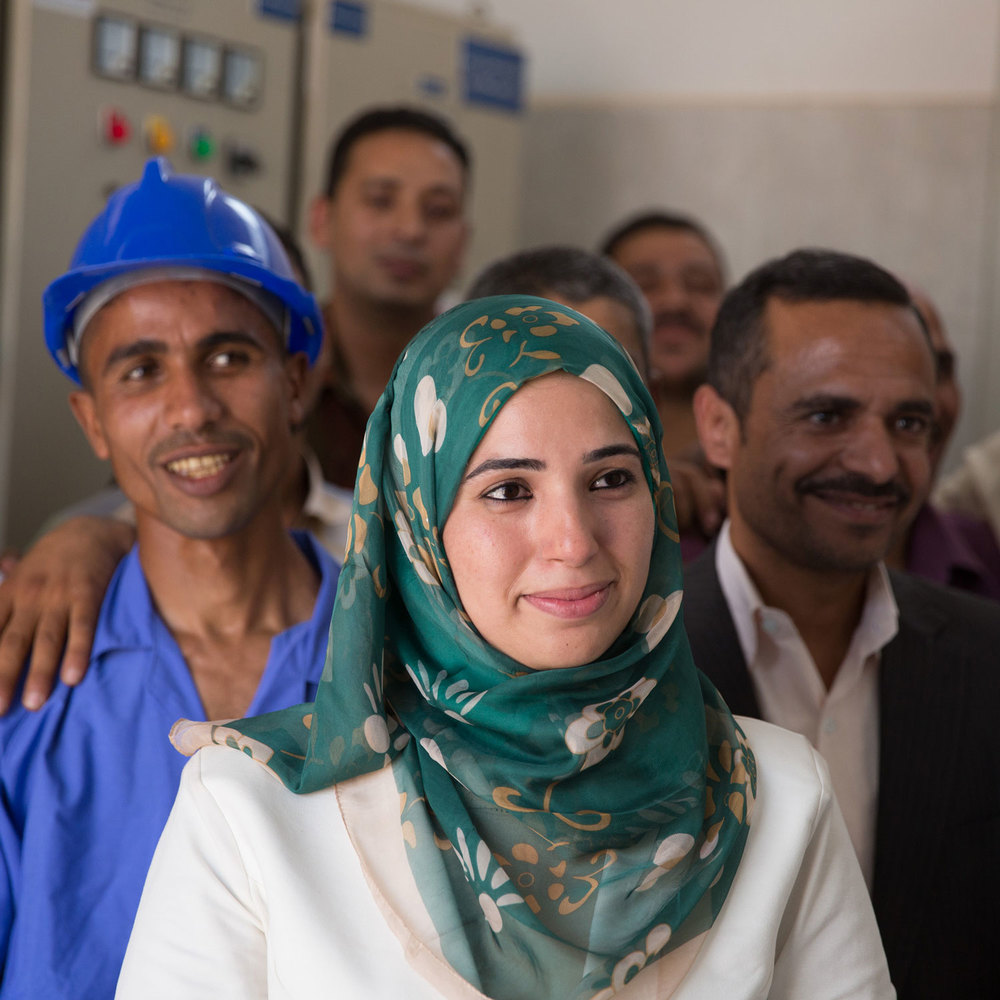
With the help from USAID, Heba and her colleagues in Assiut serve over 315,700 people with potable water treatment and wastewater collection services.
Photo for USAID/Egypt.
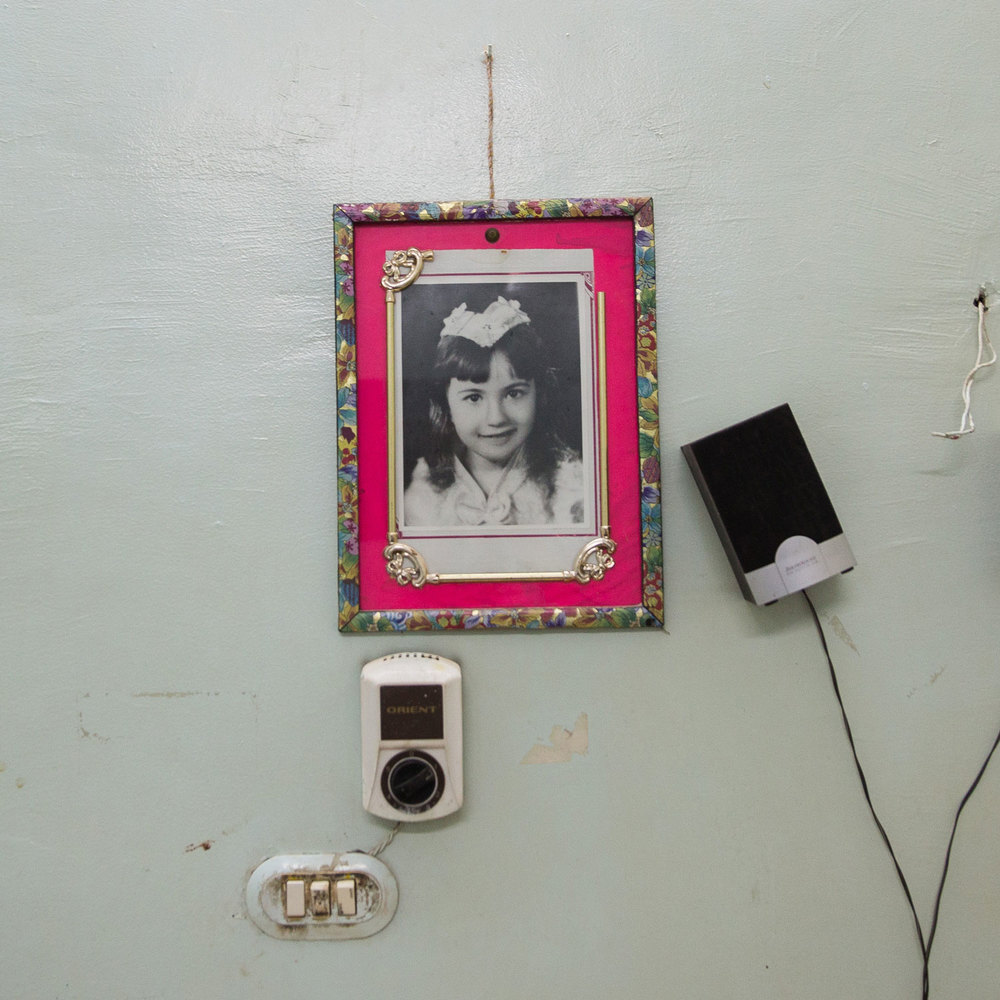
A photo of Heba as a child hangs in her family’s reception area. Heba’s father is very proud of her. He says “She was an excellent student so I encouraged her to keep studying and doing what she loves. The men who don’t let their daughters do that are old fashioned, and I’m a modern man.”
Her father worked in the Gulf and is now retired and living in Egypt with his family.
Photo for USAID/Egypt.
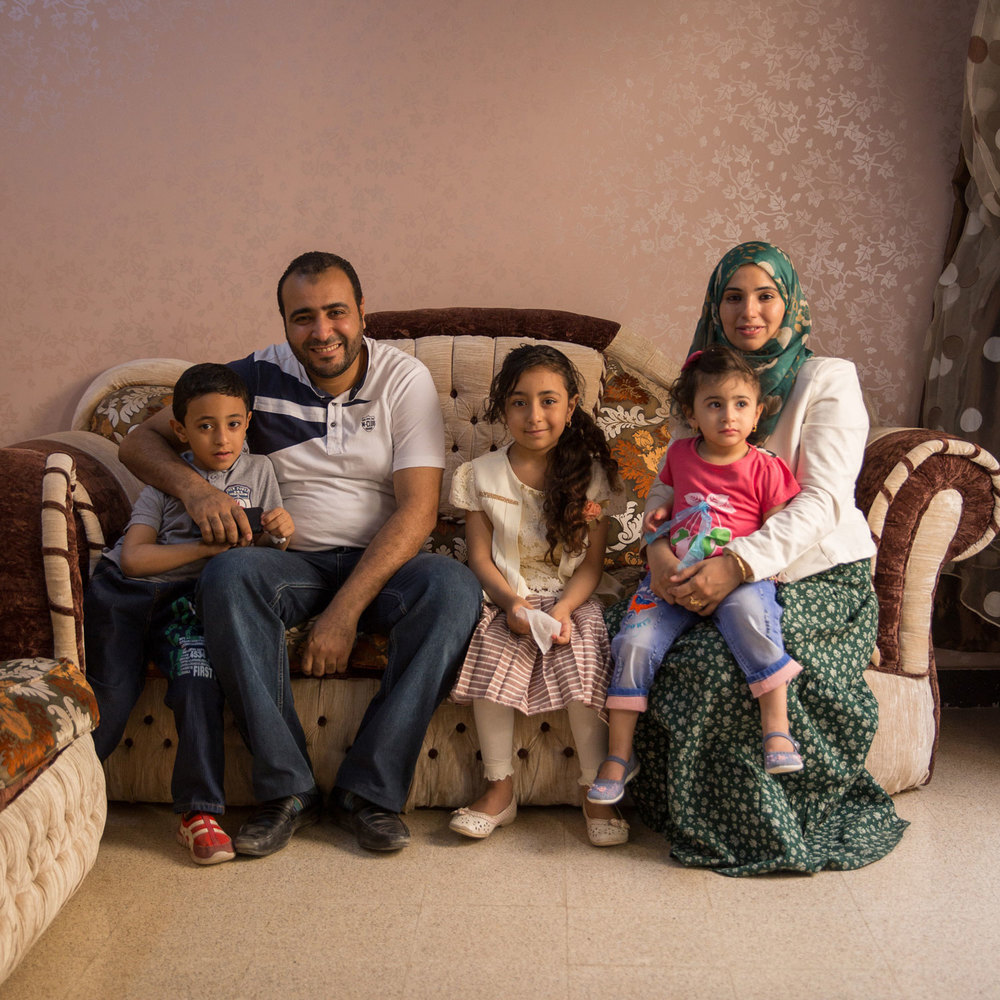
Heba and her husband Amr live in Al Quseya together with their three children.
Amr shares “I wanted to study engineering but I couldn’t, so I fully support her career. Her success is our success as she is an extension of myself.”
Photo for USAID/Egypt.
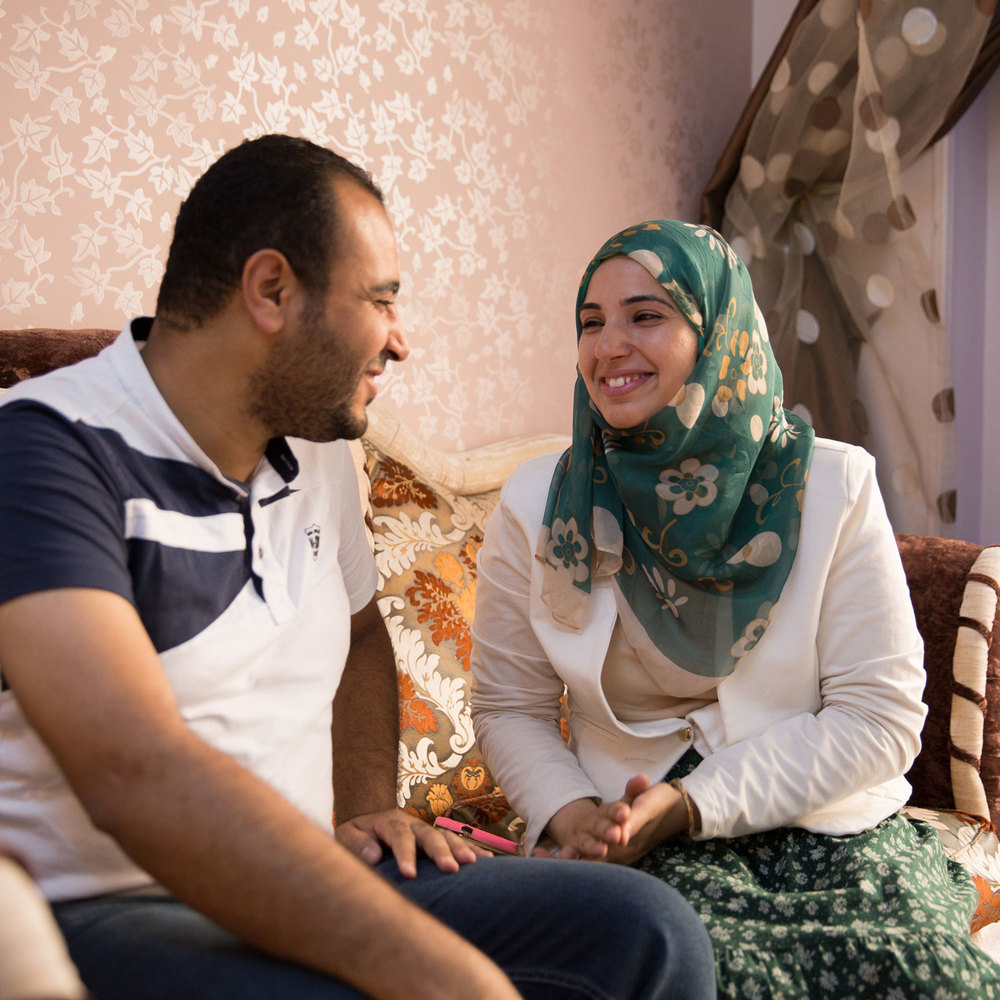
Amr, Heba’s husband, works as an accountant in Assiut and is very supportive of her. On days when she has to work late, he feeds and bathes the children so they are ready for bed.
Photo for USAID/Egypt.
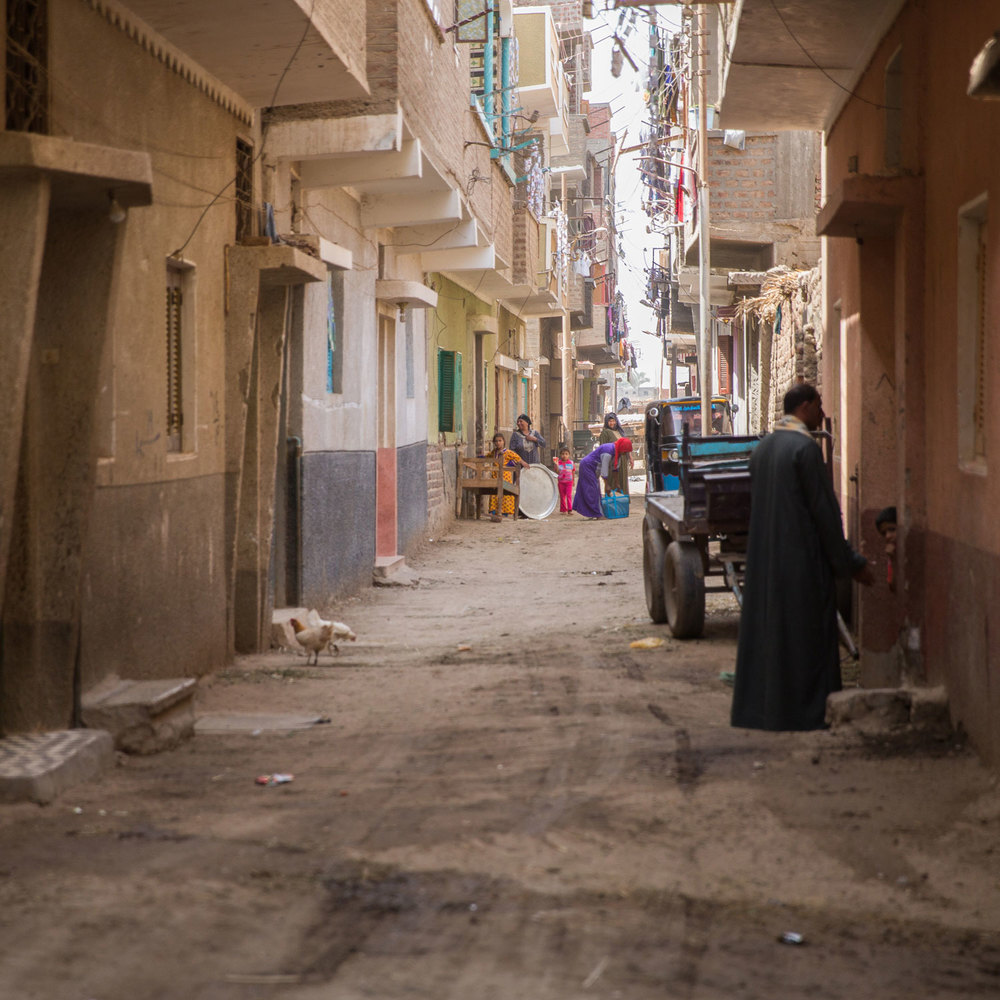
Beni Edrees is one of five villages in Assiut that Heba and her team are responsible for.
Every day Heba goes out into the villages to meet with residents and check on their complaints. Because Heba is a woman, it is more comfortable for female residents to share their sanitation problems with her.
Photo for USAID/Egypt.
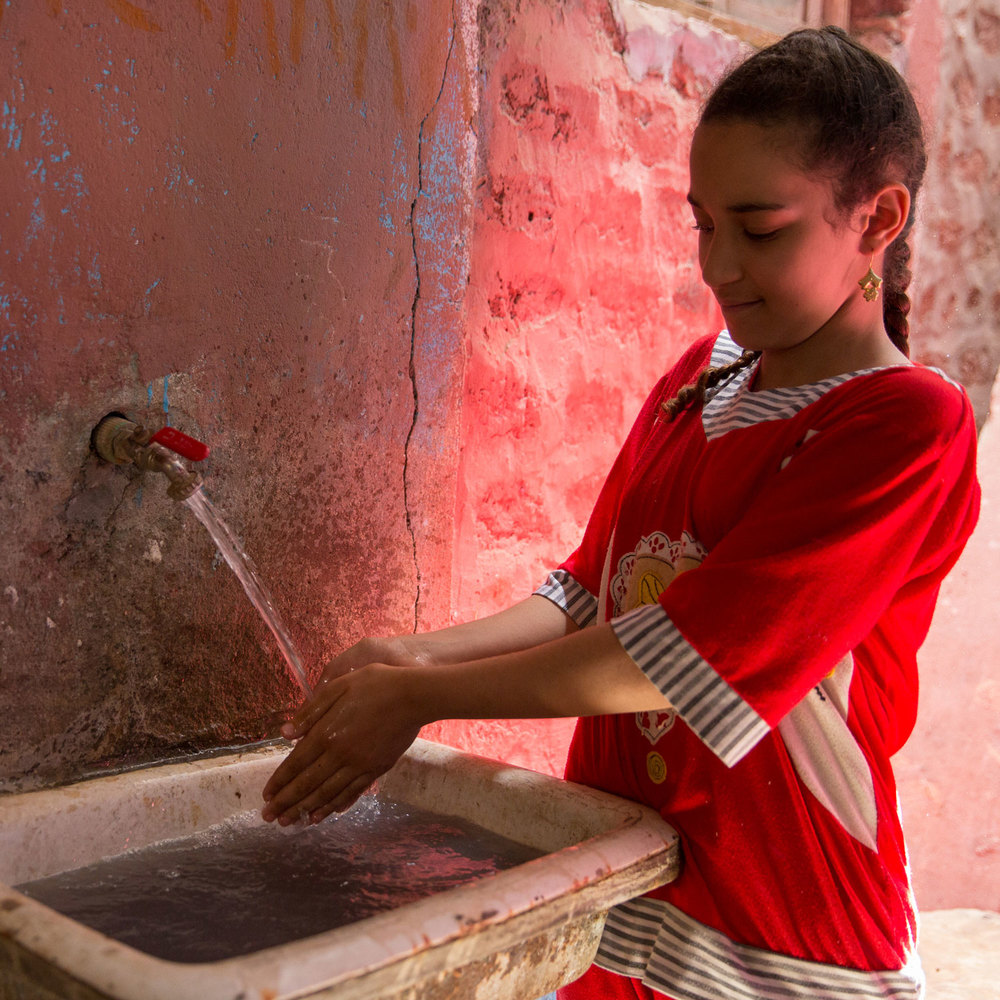
Esraa, 11, washes her hands in her home in Beni Edrees, while Heba talks to her mother about her satisfaction with the waste water services.
She shared they now shower much more often as they no longer have to worry about their septic tank overflowing. Their tank used to fill up every week, which was very expensive to drain.
Photo for USAID/Egypt.
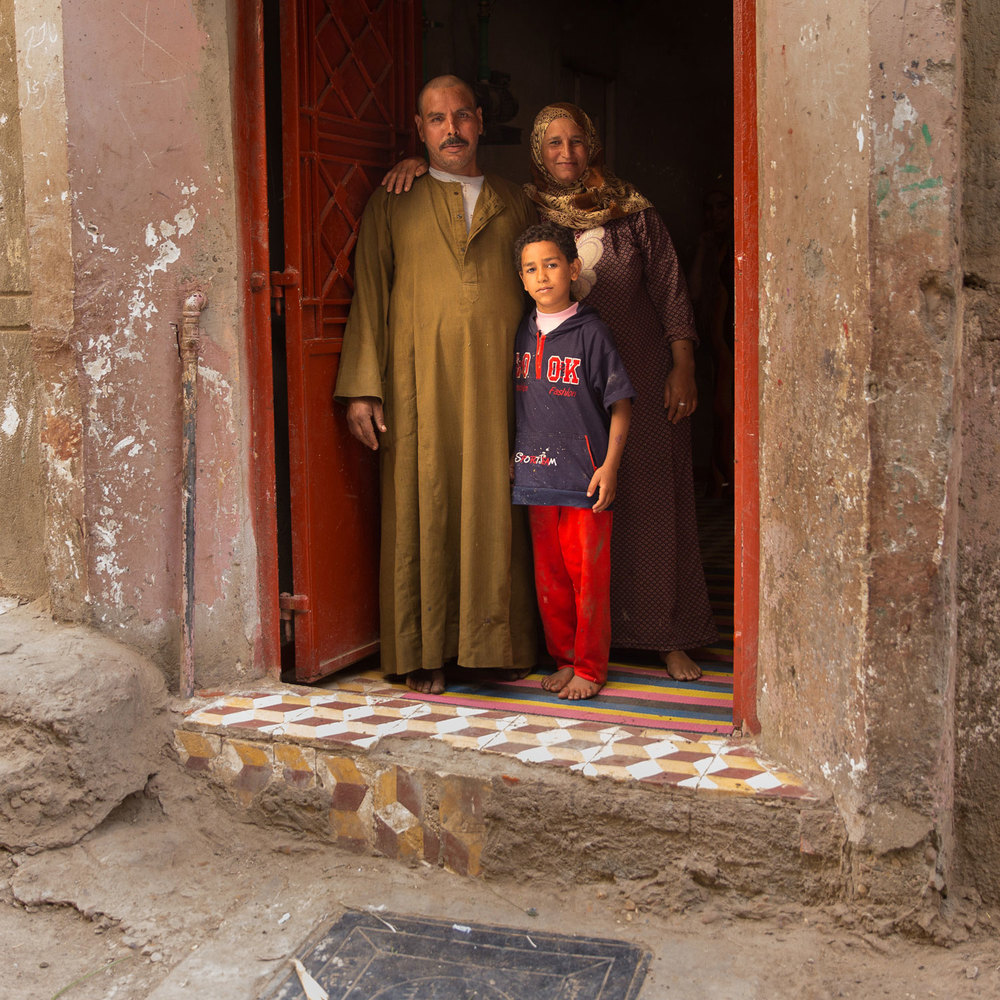
Nada Falwzy and her family have a sewage manhole cover right in front of their home. Before their home had the waste water sanitation connection, they had to rely on the use of a septic tank, which had to be emptied every few weeks. They had a lot of problems including bug bites, roaches and mosquitos.
Now with the sanitation connection, they save money and no longer have to worry about contaminated water in their home.
Photo for USAID/Egypt.
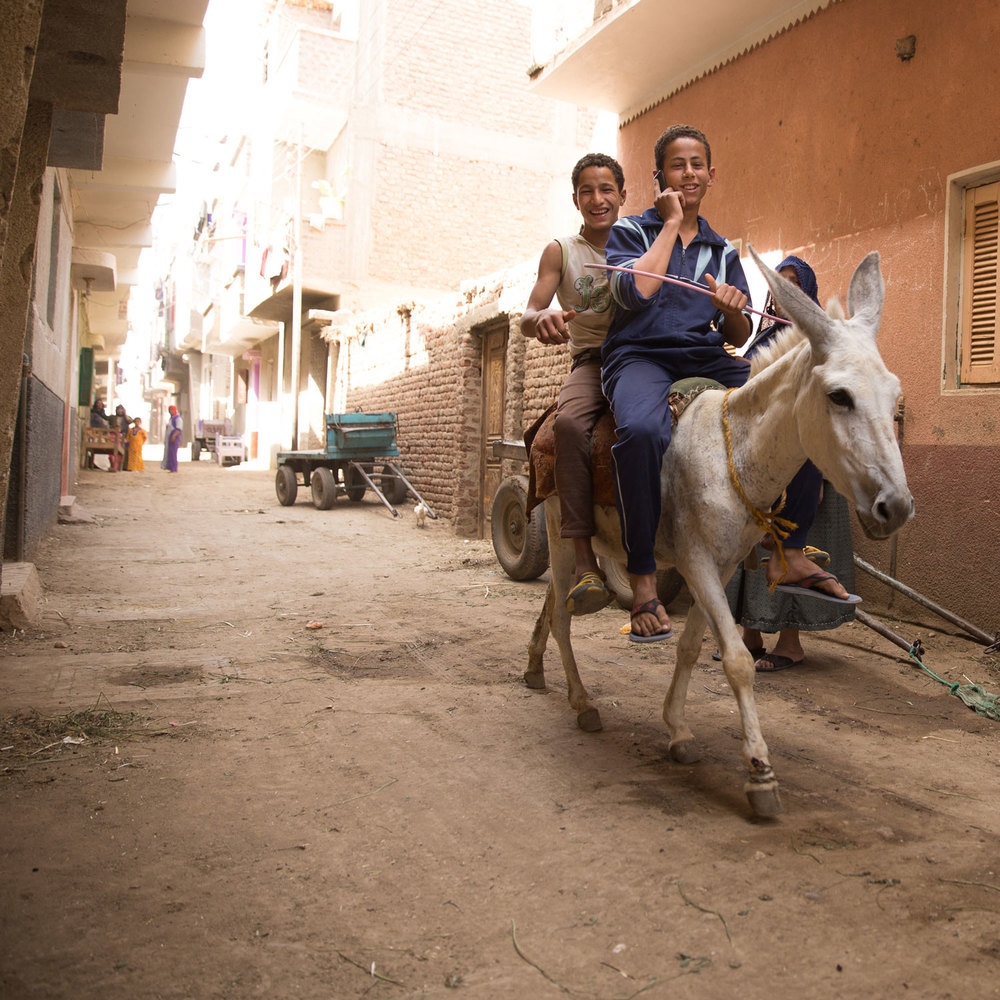
With the help of USAID, Beni Edrees was serviced with a wastewater system in 2014. The village now has 900 household wastewater connections servicing about 9000 people.
Photo for USAID/Egypt.
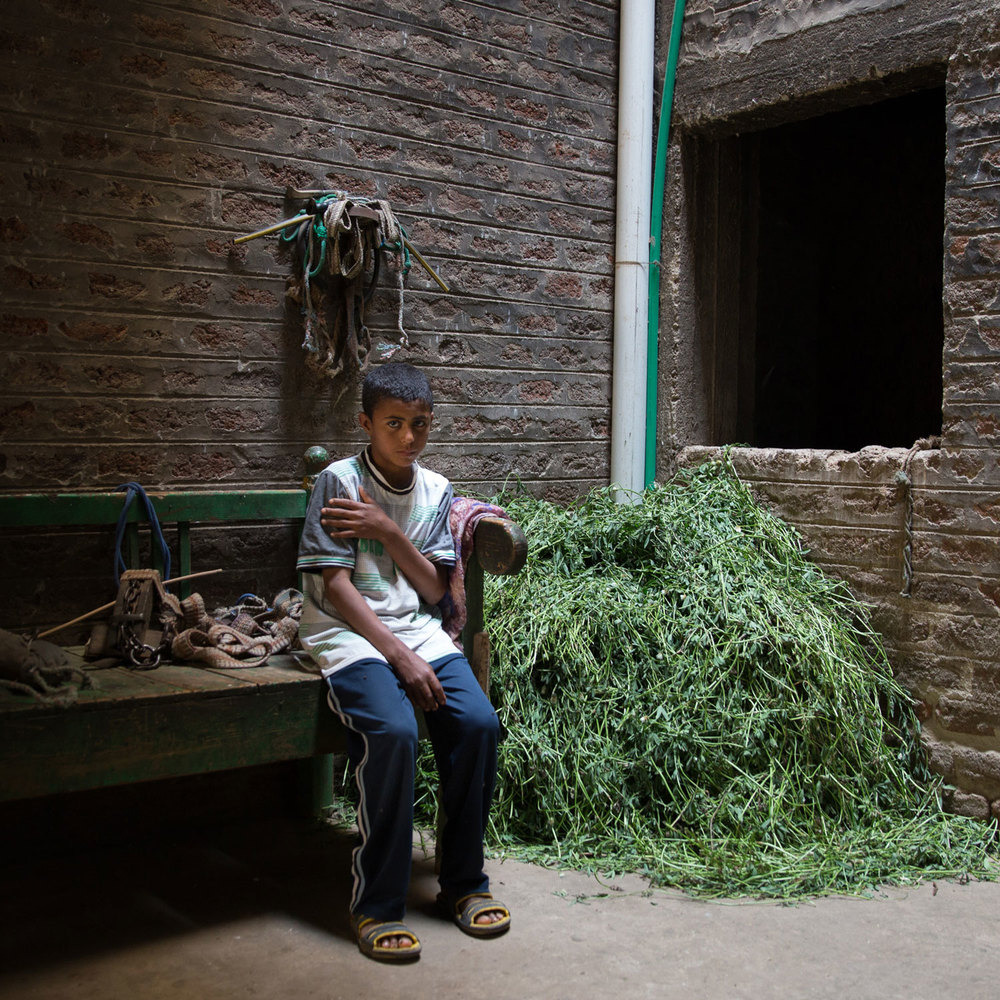
Before the sanitation connection, Ahmed's family reports that the house was infested with bugs and roaches and that the kids were always sick. Now it is better because the house is clean.
Photo for USAID/Egypt.
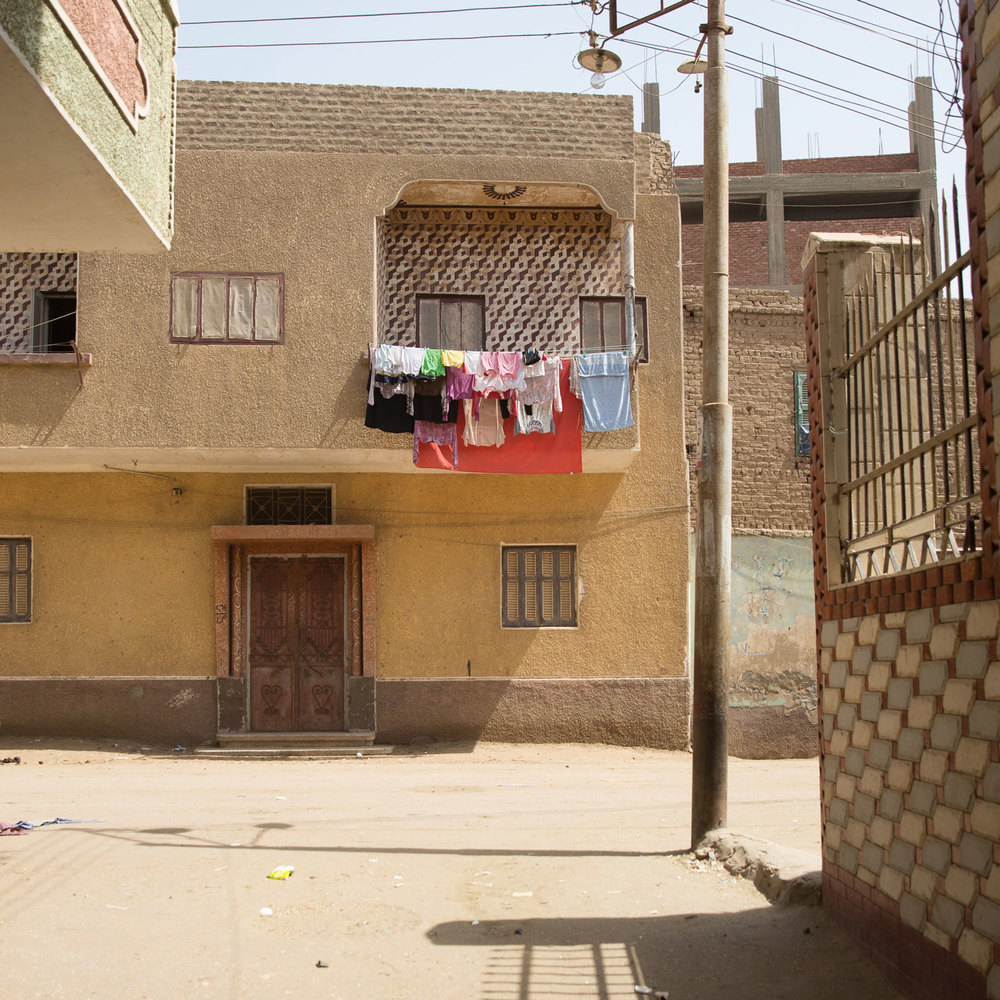
Families can now wash their clothing more often as they do not have to worry about the waste water filling up their septic tanks. This simple change leads to greater hygiene improvements.
Over 315,700 people in Assiut benefit from USAID’s work in the expansion of potable water treatment and wastewater collection services.
Photo for USAID/Egypt.
















Assiut is the poorest governorate of Egypt, where many people struggle to provide the most basic needs for their families.
Nearly all families in Assiut have potable water services, yet sanitation services cover only 20% of the governorate. Only seven of 235 villages have this service, making rural sanitation a major challenge for Assiut.
Photo for USAID/Egypt.
Heba Adel Mohamed is a 29 year old manager of five waste water pump stations in the Al Quseya district, about 60 km outside of Assiut. She supervises 50 male technicians and laborers and together they are responsible for the waste water services for thousands of residents.
She works for the Assiut Potable Water and Sanitation Company, a public service company owned by the Egyptian government, which since 2011 has received over $20 million from USAID/Egypt to fund the construction of nine water and wastewater projects in Assiut.
Photo for USAID/Egypt.
Heba studied electrical engineering at Assiut University because she felt engineering allowed her to be most creative.
“The thing I love most about my job is that I learn something new every day, especially in water sanitation. If something breaks, you don’t have a lot of time to fix it, so you have to be creative.”
Photo for USAID/Egypt.
In the beginning, some of the laborers had trouble taking orders from her, both because she is a woman and because she is so young. Heba proved herself to be a valuable asset to the team and now everyone respects her as they work together for a shared goal.
Heba says that “in a work environment there are rules that apply to men and women equally, so there’s no problem with us working together.”
Photo for USAID/Egypt.
Heba’s manager Essam Ahmed has believed in her since she started working with the company 5 years ago. He trained her and supported her along the way.
Photo for USAID/Egypt.
Heba acts as the liaison between the Assiut Potable Water and Sanitation Company and its customers, as she visits their homes and resolves complaints regarding their waste water services.
Photo for USAID/Egypt.
With the help from USAID, Heba and her colleagues in Assiut serve over 315,700 people with potable water treatment and wastewater collection services.
Photo for USAID/Egypt.
A photo of Heba as a child hangs in her family’s reception area. Heba’s father is very proud of her. He says “She was an excellent student so I encouraged her to keep studying and doing what she loves. The men who don’t let their daughters do that are old fashioned, and I’m a modern man.”
Her father worked in the Gulf and is now retired and living in Egypt with his family.
Photo for USAID/Egypt.
Heba and her husband Amr live in Al Quseya together with their three children.
Amr shares “I wanted to study engineering but I couldn’t, so I fully support her career. Her success is our success as she is an extension of myself.”
Photo for USAID/Egypt.
Amr, Heba’s husband, works as an accountant in Assiut and is very supportive of her. On days when she has to work late, he feeds and bathes the children so they are ready for bed.
Photo for USAID/Egypt.
Beni Edrees is one of five villages in Assiut that Heba and her team are responsible for.
Every day Heba goes out into the villages to meet with residents and check on their complaints. Because Heba is a woman, it is more comfortable for female residents to share their sanitation problems with her.
Photo for USAID/Egypt.
Esraa, 11, washes her hands in her home in Beni Edrees, while Heba talks to her mother about her satisfaction with the waste water services.
She shared they now shower much more often as they no longer have to worry about their septic tank overflowing. Their tank used to fill up every week, which was very expensive to drain.
Photo for USAID/Egypt.
Nada Falwzy and her family have a sewage manhole cover right in front of their home. Before their home had the waste water sanitation connection, they had to rely on the use of a septic tank, which had to be emptied every few weeks. They had a lot of problems including bug bites, roaches and mosquitos.
Now with the sanitation connection, they save money and no longer have to worry about contaminated water in their home.
Photo for USAID/Egypt.
With the help of USAID, Beni Edrees was serviced with a wastewater system in 2014. The village now has 900 household wastewater connections servicing about 9000 people.
Photo for USAID/Egypt.
Before the sanitation connection, Ahmed's family reports that the house was infested with bugs and roaches and that the kids were always sick. Now it is better because the house is clean.
Photo for USAID/Egypt.
Families can now wash their clothing more often as they do not have to worry about the waste water filling up their septic tanks. This simple change leads to greater hygiene improvements.
Over 315,700 people in Assiut benefit from USAID’s work in the expansion of potable water treatment and wastewater collection services.
Photo for USAID/Egypt.